Advertisement
In the eyes of many people, diving seems to be an extreme sport exclusively for young people, full of adventure and challenges.
However, with the advancement of modern medicine and diving equipment technology, more and more elderly people have begun to join the ranks of diving and experience the extraordinary fun brought by this underwater adventure sport.
In fact, diving is not only suitable for young people, but the elderly can also safely enjoy the physical and mental benefits of diving. So, what safety precautions should the elderly pay attention to when enjoying diving?
What specific physical and psychological benefits can diving bring to them? This article will answer these questions in detail and take you to explore how to make diving a new healthy hobby in the lives of the elderly.
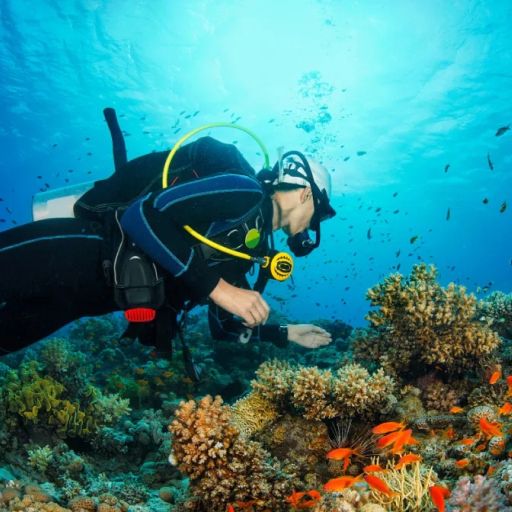
Physical and mental benefits of diving for the elderly
1. Enhance cardiopulmonary function
Diving is a sport that requires controlled breathing. By taking deep breaths and exhaling slowly, divers can maintain the body's oxygen supply, which has a significant improvement in cardiopulmonary function.
For the elderly, diving is an excellent way to exercise the heart and lungs. The pressure in the water can help the respiratory system enhance its efficiency, improve the expansion capacity of the lungs, and increase lung capacity.
In addition, keeping even breathing during diving can also help the elderly avoid worsening respiratory diseases such as asthma and chronic obstructive pulmonary disease.
2. Reduce joint pressure
Unlike land sports, diving is done in water, and the buoyancy of water can greatly reduce the pressure on joints and bones. For elderly people with arthritis or other joint problems, diving is a low-impact form of exercise.
Floating in the water not only gives the joints a rest, but also helps the elderly maintain joint flexibility and mobility through gentle movements. In addition, the underwater environment can stimulate blood circulation and help relieve joint pain.
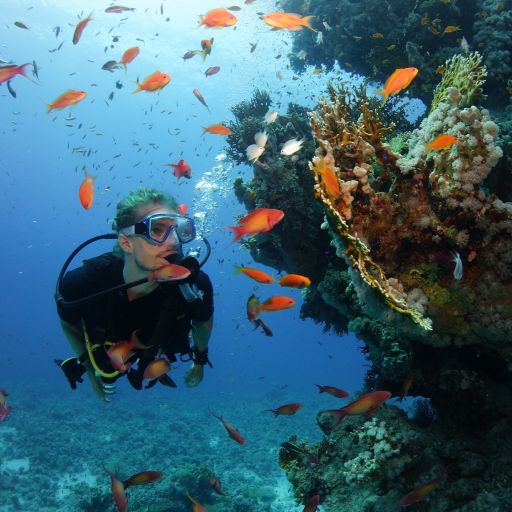
3. Improve muscle strength and flexibility
Diving is not only a cardiopulmonary exercise, it also helps to strengthen the muscles of the elderly. In the water, the human body needs to fight against the resistance of the water.
This natural resistance training can exercise the muscles of the whole body, especially the core muscles, back, legs and arms. Long-term diving can help the elderly maintain or improve muscle strength and prevent muscle atrophy.
At the same time, diving also allows the body to maintain different postures, which helps to improve the body's flexibility and coordination.
4. Improve mental health
Diving is not only good for the body, but also a very relaxing experience. Underwater, the surrounding world is quiet and peaceful, without the noise of daily life, which provides an ideal environment for the elderly to relax their brains and release stress.
Studies have shown that diving can effectively relieve psychological problems such as anxiety and depression, and help people improve their mood.
In addition, exploring the underwater world and observing beautiful marine life can also stimulate the curiosity and adventurous spirit of the elderly, bringing them psychological satisfaction.
5. Enhance social interaction
Diving is a team sport. When participating in diving activities, the elderly often need to cooperate with coaches, diving partners or other diving enthusiasts.
This spirit of cooperation not only helps to improve teamwork ability, but also enhances the social interaction of the elderly, helping them to make new friends and get rid of loneliness.
For many elderly people, diving activities provide a rich social platform, allowing them to make like-minded friends while enjoying sports and maintain a positive attitude towards life.
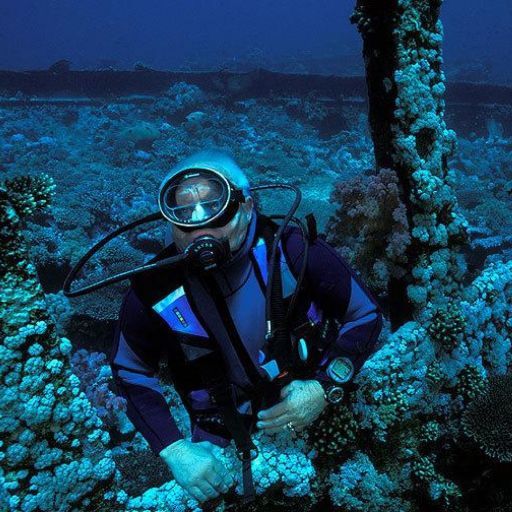
Safety precautions for elderly diving
Although diving has many benefits for the elderly, safety issues are always the focus of attention for the elderly when participating in any sport. Especially in diving, which has high requirements for physical coordination and breathing control, the elderly need to be extra careful to ensure that they enjoy the fun of diving in a safe environment.
1. Physical examination
Advertisement
Before diving, the elderly should undergo a comprehensive physical examination. As diving requires certain cardiopulmonary function, elderly people with heart disease, respiratory disease or high blood pressure need to be evaluated under the guidance of a doctor.
The doctor will give advice on whether the elderly are suitable for diving based on their physical condition. Even if the elderly are usually in good health, it is recommended to have a health examination every year to ensure that their physical condition is suitable for continued diving activities.
2. Choose the right diving course
If it is the first time for the elderly to dive, it is very important to choose the right diving course. Professional diving instructors can tailor the course content according to the physical condition and diving experience of the elderly to ensure that the elderly are safe and comfortable during the diving process.
Beginners can start with shallow water or confined water courses, gradually familiarize themselves with diving equipment and basic skills, and then gradually increase the difficulty according to their physical adaptation.
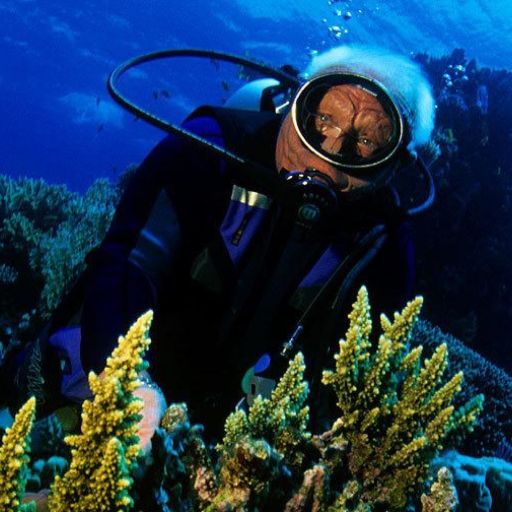
3. Reasonably control the diving depth and time
The elderly should avoid diving too deep when diving. The increase in depth will increase the water pressure on the body. For the elderly with poor cardiopulmonary function or sensitive ears, deep diving may cause discomfort or potential risks.
Generally speaking, the elderly can control the diving depth within 18 meters, so that they can enjoy the underwater beauty and ensure that the body is in a controllable state. At the same time, the elderly should also properly control the diving time to avoid long-term immersion in water causing physical fatigue.
4. Maintain adequate water intake
During the diving process, the body will still lose water through breathing and movement despite being in the water. Therefore, the elderly need to replenish enough water before and after diving to prevent dehydration.
Especially when diving in warm tropical areas, the rate of water loss is faster, and maintaining water balance in the body is essential to prevent fatigue and maintain physical fitness.
5. Choose suitable diving equipment
When choosing diving equipment, the elderly should choose suitable diving equipment such as wet suits, buoyancy regulators and masks to ensure comfort and safety.
Diving equipment should be adjusted according to the physical condition of the elderly, especially buoyancy regulators, which can help the elderly maintain stable buoyancy in the water and reduce physical exertion. In addition, the elderly can choose lighter cylinders and fins to avoid excessive weight burden on the body.
6. Avoid rapid ascent and descent
During diving, rapid ascent or descent can cause rapid changes in body pressure, which can easily cause ear discomfort, decompression sickness and other problems.
The elderly should avoid rapid ascent and descent, maintain steady breathing and slow movement, and ensure that the body gradually adapts to the pressure changes in the water.
At the end of the dive, the elderly should make appropriate decompression stops to help the body eliminate excess nitrogen and avoid decompression sickness.
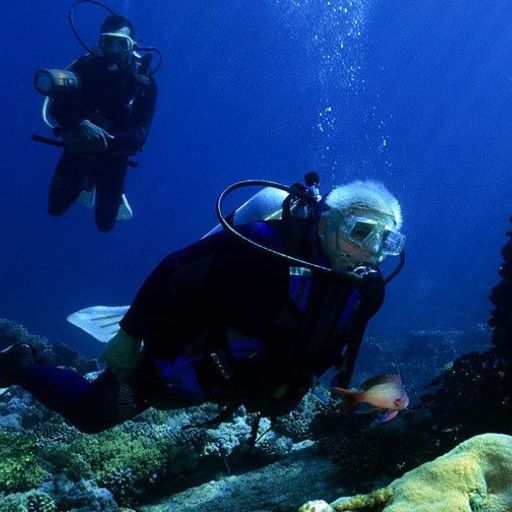
How do the elderly start their diving journey?
For the elderly, diving is a fun and beneficial sport, but beginners often feel some uncertainty and worry. Here are some suggestions on how the elderly can start their diving journey safely and happily:
1. Find a professional diving instructor
Before starting to dive, it is very important to choose an experienced diving instructor. The instructor will not only help the elderly master diving skills, but also pay attention to their physical reactions and safety conditions.
Professional diving institutions usually provide tailor-made courses for diving enthusiasts of different ages, so the elderly can choose the appropriate course according to their own situation.
2. Join a diving group exclusively for the elderly
Many countries and regions have diving clubs or exclusive diving groups for the elderly. Joining these organizations can make the elderly feel more comfortable and at ease during diving. Diving with peers not only reduces the nervousness of first-time diving, but also builds new friendships through common interests.
3. Choose the right diving site
When diving for the first time, the elderly can choose diving sites with relatively stable water flow, such as shallow bays, near coral reefs or tropical waters. These places are not only beautiful and warm, but also suitable for beginners to operate, reducing the uncertainty in diving.
Conclusion
Diving is not just a sport, it is a lifestyle, an opportunity for the elderly to step out of their daily lives and explore the unknown. Through diving, the elderly can not only improve their physical fitness, but also gain peace of mind and satisfaction.
As long as they follow the correct safety guidelines and are under the guidance of professional coaches, the elderly can fully enjoy the extraordinary fun of diving. Age is not an obstacle. Take the first step bravely, and the door to the diving world will open up a whole new world for the elderly.
Advertisement





